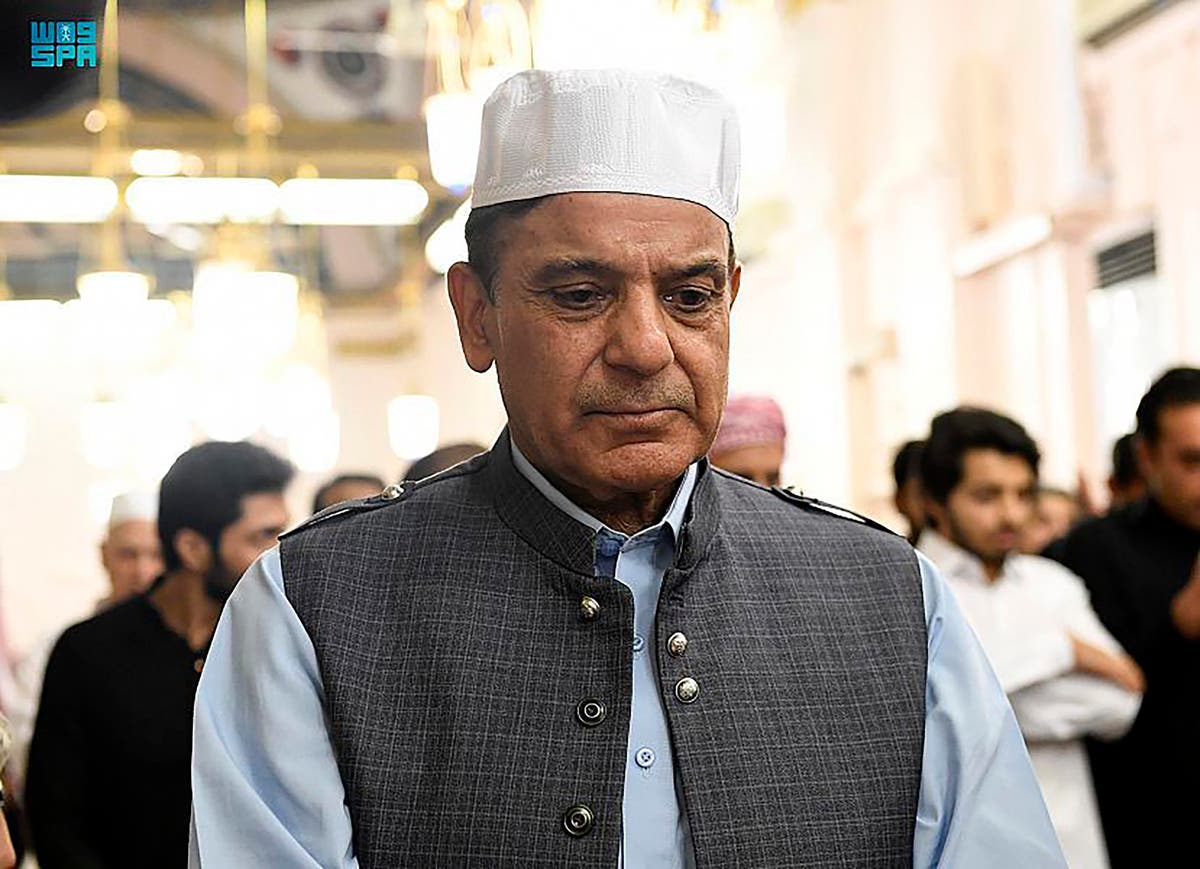
Pakistan’s newly elected prime minister was visiting Saudi Arabia Friday on his first foreign trip since taking office, an attempt to boost economic relations with the wealthy, oil-rich kingdom as Pakistan struggles with huge debt, soaring inflation and a worsening energy crisis.
Prime Minister Shahbaz Sharif landed on Thursday in the holy city of Medina, just weeks after political turmoil that rattled Pakistan’s fragile democracy and led to the ouster of former Premier Imran Khan.
Sharif professed enthusiasm before his departure, even speaking in Arabic in a video that praised the “brotherly kingdom” — a country where he spent years in exile and cultivated close ties with top officials.
Although Sharif sought to leverage his maiden trip to the birthplace of Islam as a diplomatic milestone, the political divisions that have pushed Pakistan to the brink of crisis were on stark display during his three-day visit.
Dozens of Khan’s supporters pumped their fists and hurled insults at Sharif, mobbing their political opponent as he visited one of Islam’s holiest sites — a rare scene of chaos at the shrine in Medina that drew public anger and condemnation back in Pakistan.
Sharif’s trip came at the invitation of the powerful Crown Prince Mohammed bin Salman, Pakistan’s Foreign Ministry reported, in order to advance “economic, trade and investment ties” and create “greater opportunities for the Pakistani workforce in Saudi Arabia.”
The kingdom hosts some 2.7 million Pakistanis, more than any other country. Remittances from expat laborers to Pakistan are projected to reach $32 billion this year, according to Pakistan’s central bank.
“I will have wide-ranging discussions with Saudi leadership,” Sharif tweeted, “to renew & reaffirm our bonds of brotherhood & friendship.”
Sharif is the younger brother of disgraced former Prime Minister Nawaz Sharif — who, like other powerful family members, has been dogged by accusations of corruption that they have dismissed as politically motivated.
The kingdom is familiar territory for the Sharif political house. After a bloodless military coup ousted the elder Sharif from power in 1999, Saudi Arabia agreed to host the deposed Nawaz Sharif and his family.
A 2008 U.S. diplomatic cable released by WikiLeaks reported that Shahbaz and Nawaz Sharif “retain excellent business and personal relations with the Saudi royal family,” adding that “Saudi money reputedly financed the Sharif’s parliamentary campaign.”
Shahbaz Sharif was accompanied on his visit by a delegation of some 40 people, including officials and family members — a size that prompted sharp criticism from supporters of Khan’s Pakistan Tehreek-e-Insaf, or Pakistan Justice Party, and had Sharif vigorously assuring the public he took a commercial flight at his own expense.
Controversy rose as Sharif visited the mosque of Prophet Muhammad in Medina, part of the smaller umrah pilgrimage that can take place any time of year.
As Sharif’s delegation glided through the immaculate courtyard, dozens of Pakistani pilgrims at the mosque could be heard yelling “chor!” or “thief!” at the sight of their newly elected prime minister, according to footage widely circulated on social media.
Saudi security guards could be seen attempting to restrain the pilgrims. In one video, a man could be seen tugging the hair of a Pakistani official.
The episode sparked widespread fury in Islamabad on Friday, as the new government condemned the ousted prime minister and his supporters for sowing division.
“This man (Khan) wants to destroy the society, this man has divided the nation, and this man is misguiding youths,” said Pakistani Interior Minister Rana Sanaullah, demanding the Saudi government take action against those who accosted Sharif.
“These (people) should be deported, so that we can also take action against these violators,” Sanaullah added.
There was no comment on the issue from Saudi authorities. The official Saudi Press Agency reported Sharif’s evening prayers at the mosque in Medina without further details.
___
Associated Press writer Munir Ahmed in Islamabad, Pakistan, contributed to this report.







